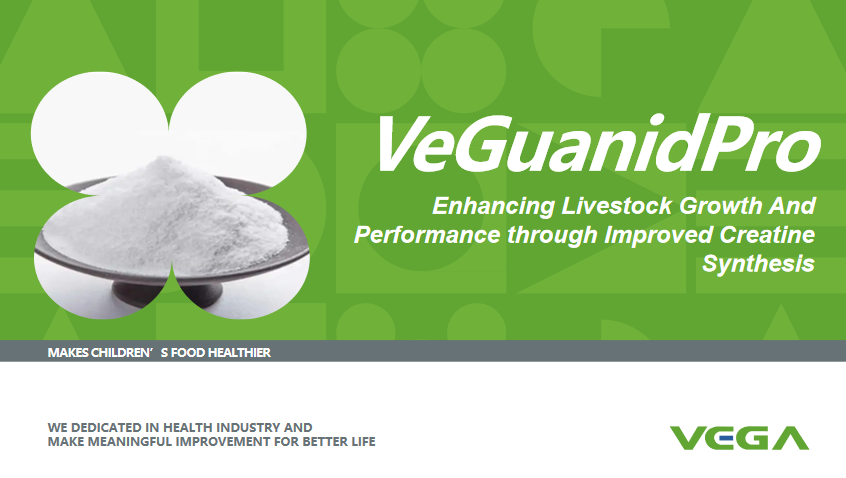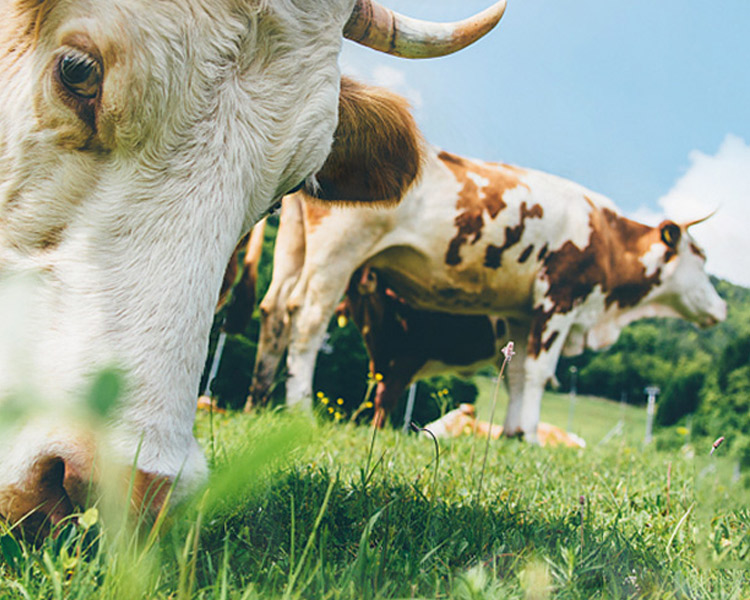VeGuanidPro (GAA) China Factory
 Features and Benefits
Features and Benefits
 1. can promote the transfer of energy to muscle tissue
1. can promote the transfer of energy to muscle tissue
 2. allowing muscle growth to gain more energy and nutrients, thus promoting lean meat growth
2. allowing muscle growth to gain more energy and nutrients, thus promoting lean meat growth
Introduction:
VeGuanidPro (GAA), also known as guanidoacetic acid, belongs to the natural amino acid and its derivatives. It is the direct precursor of creatine in vertebrates.
Product Characteristics’╝Ü
VeGuanidPro can improve the creatine level in the muscles of pigs, cattle, sheep, chickens, and other livestock and poultry. It participates in energy metabolism regulation, improves lean meat rate, enhances body size, controls fat, increases muscle, and promotes growth.
Phosphocreatine is the main energy supply material in animal muscle tissue. VeGuanidPro supplementation can promote the transfer of energy to muscle tissue, allowing muscle growth to gain more energy and nutrients, thus promoting lean meat growth.
Why Guanidinium Acetate is Added’╝Ü
1.Lack of Creatine Synthesis by the Animal Itself
2. Low Creatine Absorption Rate
3.Plant Diet Lacks Creatine
4.Effectively Increases Creatine Content
5.Reduces the Amount of Arginine Added in Poultry
Functional Characteristics
Improve Animal Performance
1. Significantly improve slaughter rate and lean meat rate, and enhance animal body size (notably in meat cattle and sheep, leading to a thicker neck, wider back, and plumper buttocks).
2. Remove free radicals to improve meat color and quality.
3. Reduce animal stress and enhance immunity (improve intestinal barrier and enhance immune cell function).
4. Improve sperm energy metabolism, fertilization rate, and reproductive performance.
5. Replace animal protein raw materials, reduce arginine addition, lower costs, and increase efficiency.
Ruminants Treatment with Encapsulation
1.Ruminants such as cattle and sheep have a unique rumen physiological structure. Guanidinium acetate can be significantly degraded by rumen microorganisms, losing biological activity and preventing intestinal absorption, leading to feed loss and high breeding costs.
2.Encapsulated guanidinium acetate can remain in the rumen for about 12 hours, avoiding rumen environment damage, reaching the intestines safely, and playing its role effectively.





